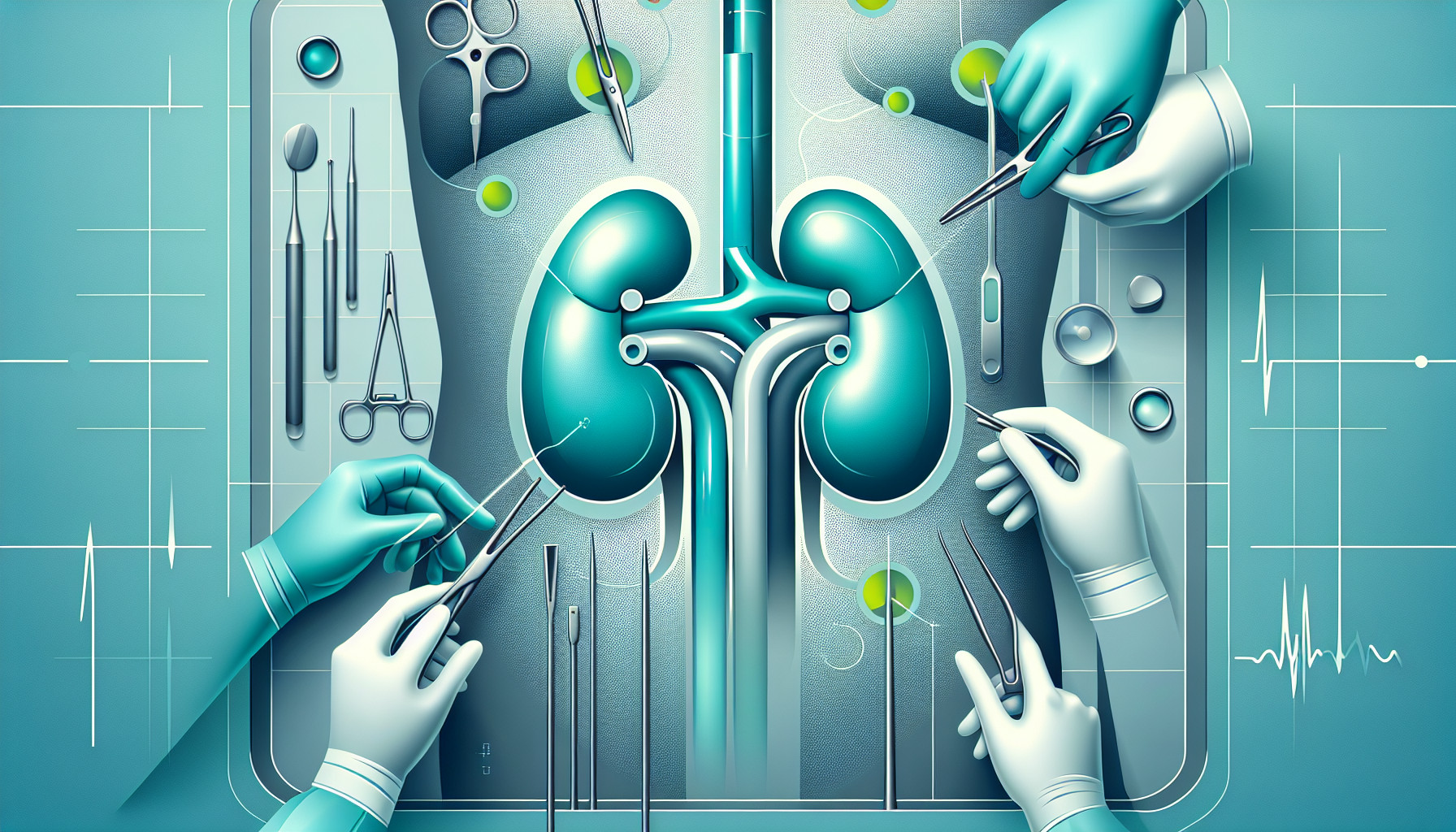Our Summary
This research paper discusses a rare disease known as graft-versus-host disease that can occur after a solid-organ transplant, specifically after a simultaneous pancreas-kidney transplant. The exact cause of this disease is not well understood, but it appears to be linked to an increase in mixed donor cells inside the patient’s body.
The researchers conducted a study on patients who had undergone a pancreas-kidney transplant where the donor was of a different sex. They used a technique called fluorescence in situ hybridization to track the presence of donor cells in the patients’ bodies over time.
The study found that there was no evidence of mixed donor cells in the seven patients studied. The researchers also reviewed previous cases of graft-versus-host disease and found that symptoms usually appeared about five weeks after transplantation, with the disease often misdiagnosed for about two weeks. The most common symptoms were skin, gut, and bone marrow problems, along with unexplained fever. Unfortunately, the average survival time after the onset of symptoms was only 48 days.
Based on these findings, the researchers concluded that there is not an unusually high risk of graft-versus-host disease after a simultaneous pancreas-kidney transplant. They also suggested that collaboration between specialists in organ transplantation and stem cell transplantation could improve understanding of this and other shared complications.
FAQs
- What is graft-versus-host disease and when does it typically occur after a transplant?
- What method was used to track the presence of donor cells in the patients’ bodies?
- What were the main findings of the research study on graft-versus-host disease after a simultaneous pancreas-kidney transplant?
Doctor’s Tip
A doctor might tell a patient undergoing a kidney transplant to closely follow their post-transplant care plan, including taking prescribed medications, attending follow-up appointments, and monitoring for any signs of complications. They may also advise the patient to maintain a healthy lifestyle, including eating a balanced diet, staying active, and avoiding smoking and excessive alcohol consumption to support the success of the transplant.
Suitable For
Patients who are typically recommended for a kidney transplant include those with end-stage renal disease, which is the final stage of chronic kidney disease where the kidneys are no longer able to function effectively. This can be caused by conditions such as diabetes, high blood pressure, or autoimmune diseases like lupus.
Other factors that may make a patient a good candidate for a kidney transplant include being in relatively good overall health, having a strong support system, and being compliant with medical treatments. Patients who are younger and have fewer other health problems also tend to have better outcomes after a kidney transplant.
Additionally, patients who are on dialysis and experiencing complications such as infections, poor quality of life, or difficulty managing their dialysis treatments may be recommended for a kidney transplant. Transplantation can offer these patients a better quality of life and improved long-term survival compared to remaining on dialysis.
Ultimately, the decision to recommend a kidney transplant for a patient is made on a case-by-case basis by a multidisciplinary team of healthcare professionals, including nephrologists, transplant surgeons, social workers, and psychologists. They will consider the patient’s individual medical history, overall health status, and potential for success with a transplant before making a recommendation.
Timeline
Before kidney transplant:
- Patient is evaluated by a transplant team to determine if they are a suitable candidate for a kidney transplant
- Patient undergoes various tests and screenings to assess their overall health and compatibility for transplant
- Patient is placed on the transplant waiting list and waits for a suitable donor match
- Once a donor is found, surgery is scheduled and patient undergoes pre-operative preparations
- Patient undergoes kidney transplant surgery
After kidney transplant:
- Patient is monitored closely in the hospital for signs of rejection or complications
- Patient may experience side effects from medications used to prevent rejection, such as increased risk of infection or other health issues
- Patient will need to take immunosuppressant medications for the rest of their life to prevent rejection of the new kidney
- Patient will have regular follow-up appointments with their transplant team to monitor kidney function and overall health
- Patient will need to make lifestyle changes to maintain the health of their new kidney, such as following a special diet and staying active
- Patient may experience improvements in their overall health and quality of life after successful kidney transplant.
What to Ask Your Doctor
Some questions a patient should ask their doctor about kidney transplant include:
- What is the overall success rate of kidney transplants, and what are the potential risks and complications associated with the procedure?
- How long is the typical recovery time after a kidney transplant, and what kind of follow-up care will be needed?
- How will I be monitored for any signs of organ rejection after the transplant, and what steps can be taken to prevent rejection?
- What medications will I need to take after the transplant, and what are the potential side effects of these medications?
- How will the transplant affect my overall health and quality of life in the long term?
- Are there any lifestyle changes I should make before or after the transplant to improve the success of the procedure?
- What kind of support resources are available for kidney transplant patients, both during the procedure and in the recovery period?
- What is the process for finding a suitable donor for the transplant, and what are the options if a suitable living donor is not available?
- Are there any alternative treatments or therapies that could be considered instead of or in addition to a kidney transplant?
- How should I prepare mentally and emotionally for the transplant procedure and the potential challenges of life post-transplant?
Reference
Authors: Rashidi A, Brennan DC, Amarillo IE, Wellen JR, Cashen A. Journal: Exp Clin Transplant. 2018 Jun;16(3):307-313. doi: 10.6002/ect.2016.0299. Epub 2017 Jun 28. PMID: 28661312
